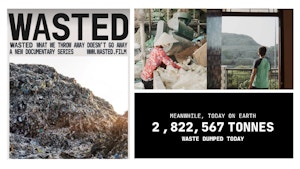#plastic credits News

Multinational consumer goods brands have gone cold on recycled plastic – now priced higher than virgin – and look likely to miss their 2025 recycling targets. Recyclers in Asia are suffering as a result, particularly waste pickers at the vulnerable end of the value chain.

Companies and other entities are buying 'plastic credits' allowing them to offset every ton of plastic they make with an equivalent amount of plastic waste collected and taken out of the environment elsewhere — often in poor nations lacking waste management programs.

The country's extended producer responsibility act aims for informal waste pickers to earn more by allowing the recovery of plastics that did not have any value in the past. But is the price of hard-to-recycle flexible plastic high enough for a "just transition" for waste pickers?

The world can save trillions of dollars and cut contamination by 80 per cent using existing technology, but the effort needs big policy moves, says a report released ahead of another round of talks for a legally-binding plastic treaty.
#plastic credits Videos

Launched as policymakers lock horns with petrochemicals lobbyists over a treaty to end plastic pollution, the documentary produced by Eco-Business asks why opportunities to solve humanity's waste crisis are being wasted. It will premiere in Singapore and screen on the sidelines of the upcoming COP28 climate summit.










